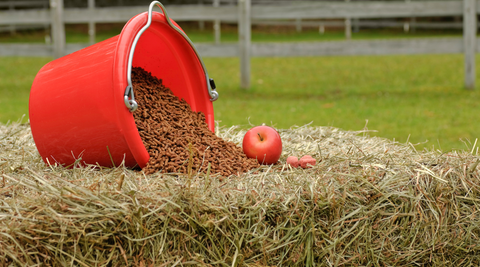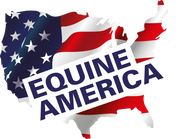What are NOPS and why should you care?!

NOPS stands for Naturally Occurring Prohibited Substances; these are substances that are either naturally present within certain ingredients (such as salicylic acid in willow bark) or that occurs as a result of inadvertent cross contamination during processing before arriving at the feed manufacturer’s facility (such as contamination with weeds e.g. deadly nightshade).
Prohibited substances put simply are substances that are not allowed in a horse and will result in a positive dope test. Although all NOPS are prohibited substances, not all prohibited substances are NOPS! Prohibited substances cover a wide range of substances that can come from a variety of sources including: human and veterinary medicines, food (e.g. cocoa, bakery products and sweets), drinks (e.g. tea and coffee or other caffeine containing soft drinks), feeds, recreational drugs and CBD supplements.
There are some differences between the prohibited substances lists and they can change so it is important to keep up to date with your regulatory body! You can find further information here for the BHA and FEI:
Prohibited substances | British Horseracing Authority
Clean Sport for Horses - FEI Prohibited Substances List | FEI
The main NOPS found are (with their likely source):
|
NOPS |
Likely Source |
Herbal NOPS |
Likely Source |
|
Caffeine |
Cacao, coffee, tea |
Cathinone/ Cathine |
Khat |
|
Theobromine |
Cacao |
Digitoxin |
Foxglove (digitalis sp.) |
|
Theophylline |
Tea products |
Ephidrine/ Psuedoephidrine |
Ephedra sp. |
|
Morphine |
Opium Poppy (Papaver somniferum) |
Reserpine |
Indidan Snakeroot, Devils Pepper, (Rauvolifia sp.) |
|
Hyoscine/ Scopolamine |
Deadly Nightshade (atropa belladonna), Jimson Weed (Datura sp.) |
Synephrine |
Bitter orange cultivars (citrus sp.), Teff hay |
|
Hordenine |
Sprouted grains (barley) |
Harpagosides |
Devils claw |
|
Atropine/ Hyoscyamine |
Deadly Nightshade (atropa belladonna), Jimson Weed (Datura sp.) |
Salicylic Acid |
Willow Bark, Meadow Sweet |
|
Cannabinoids, including CBD, CBDA and THC |
Hemp products Cannabis sativa |
Valerenic Acid |
Valerian (valeriana officianalis) |
|
Sparteine |
Lupins, Scotch Broom |
Yohimbine |
Yohimbe tree (rauvolifia sp.) |
|
Bufotenine |
Canary grass (Phalaris sp.), toads and toadstools |
|
|
What does this logo mean?

This is the BETA-NOPS logo and this is an assurance scheme designed to reduce the risk of NOPS in equine feeds and to display this logo the company must be accredited by BETA NOPS. Equine America are BETA-NOPS accredited and manufacture to a strict code of feed safety. Our products are manufactured in licenced premises using quality assured ingredients under strictly controlled production conditions and conform to the requirements of the relevant legislation governing the manufacture of animal feeding stuffs. Equine America monitors for the presence of specified naturally occurring prohibited substances (NOPS) as required under the rules of racing and other affiliated competitions which are in line with BETA NOPS guidelines. Adherence to these guidelines ensures that the risk of occurrence of such substances is minimised.
Tips to reduce the risk of feed contamination:
- Careful when you eat or drink in the stables (or on hay bales!) as a spilt cup of tea or a dropped chocolate biscuit could end up inadvertently being ingested by a horse and result in a positive dope test for caffeine, theobromine or theophylline.
- Ensure everyone on the yard understands the risks of prohibited substances and how to avoid them. If anyone handling the horses is taking medication this needs to be considered in the yard risk assessment to avoid inadvertent contamination.
- Avoid sharing tack and equipment especially buckets and feed stirrers between horses.
- If a horse receives medication, ensure precautions are taken to prevent cross contamination, including wearing gloves, washing hands and using a separate bucket for feeding that is clearly labelled. The stable should be thoroughly cleaned and disinfected at the end of treatment and an appropriate withdrawal period observed (your Vet will be able to advise you). Keep the medication locked away.
- Ensure when moving stables (including at stay away shows) the new stable is thoroughly cleaned and disinfected before use.
- Clean and disinfect horse transport between journeys.
- Keep feedstuffs secure and be vigilant at home and when staying away. Ensure bags of feed and supplements are sealed and labelled when purchased. Do not share food storage with medication or food for other animals e.g. poultry/ sheep.
- Ensure you know exactly what is being fed to your horse at all times. Do not allow others to feed titbits to horses, especially human food.
- Buy feed and supplements with the BETA NOPS logo to reassure you that the manufacturer is part of the BETA NOPS quality assurance scheme designed to reduce the risk of contamination with NOPS. More information on the BETA NOPS Scheme can be found here: British Equestrian Trade Association - BETA NOPS Scheme (beta-uk.org)
- Check your pasture and forage for unknown or risky plants. Source your hay/ haylage from reputable suppliers.
- Keep records of feed, including batch numbers and source of feed bought. Also keep records of any medication given. This will make tracing the source of a problem easier should the need arise.
- Don’t forget bedding (for example hemp) can also be a source of NOPS.
 Skip to content
Skip to content

